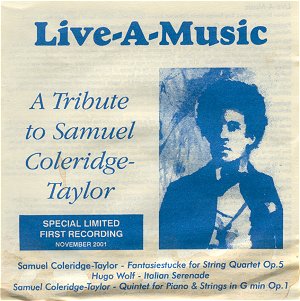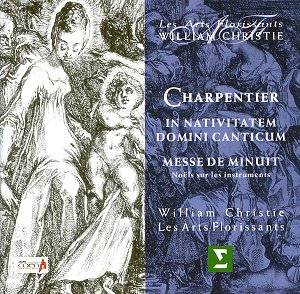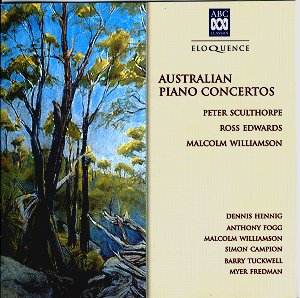 Composer: Samuel Coleridge-Taylor
Composer: Samuel Coleridge-Taylor
Works: Piano Quintet in G minor Op. 1, Fantasiestücke for String Quartet Op. 5, Italian Serenade
Performers: Andrew Berridge (violin), Tony Burrage (violin/Director), Joanna Lacey (viola), Michael Parratt (cello), John Pearce (piano)
Recording: Live concert recording, Liverpool Philharmonic Hall, 7 Nov 2001
Label: Live-A-Music
Samuel Coleridge-Taylor, a prominent figure in the late Victorian and early Edwardian music scenes, remains a composer of profound significance, particularly for his contributions to chamber music and choral works that reflect both his rich cultural heritage and the influences of his contemporaries. The present recording features two early chamber works, the Piano Quintet in G minor Op. 1, composed when he was just eighteen, and the Fantasiestücke for String Quartet Op. 5. These pieces are juxtaposed with Hugo Wolf’s lively Italian Serenade, creating an intriguing concert that highlights the youthful exuberance and stylistic ambition of Coleridge-Taylor, while also illuminating the vibrant energy of Wolf’s writing.
The performance by the ensemble Live-A-Music is characterized by an infectious enthusiasm that permeates the entire recording. Right from the bracing opening of the Piano Quintet, the players exhibit a palpable rapport, executing the vigorous Allegro con moto with a sense of urgency and dramatic flair that reflects the piece’s romantic impulses. This Quintet, though influenced by Brahms and Dvořák, reveals Coleridge-Taylor’s unique voice, one that melds lyricism with robust thematic material. The performers navigate the tempestuous passages with an admirable blend of power and sensitivity, particularly evident in the Larghetto, where the cello’s yearning lines are countered beautifully by the piano’s delicate touch.
The Fantasiestücke, dedicated to the composer’s mentor Sir Charles Villiers Stanford, showcases Coleridge-Taylor’s burgeoning maturity as a composer. The ensemble transforms the string quartet into a veritable orchestra, especially in the Humoresque, where the spirited interplay between the instruments creates a rich tapestry of sound. The rhythmic vitality of the Dance movement is particularly striking, as the ensemble deftly captures its playful character, reminiscent of Dvořák’s own folk-inspired works. Although the recording does suffer from occasional imperfections typical of a live performance—such as a noticeable cough at 5.58 in the Quintet’s first movement—the overall sound quality remains commendable, with a warm, resonant ambiance that enhances the listener’s experience.
Wolf’s Italian Serenade serves as a delightful interlude between the Coleridge-Taylor pieces, and here, the ensemble’s agility shines through. While there are moments where the execution feels slightly tentative, the spirit of the work—marked by its lively rhythms and melodic charm—comes through effectively. The ensemble captures the essence of this delightful piece, balancing the playful and lyrical aspects with aplomb.
This recording of Coleridge-Taylor’s Piano Quintet is particularly noteworthy not only for its historical significance—being one of the few performances since its premiere in 1893—but also for the sheer vitality and interpretative insight that Live-A-Music brings to the work. The decision to present this lesser-known piece alongside a more familiar work by Wolf enriches the programmatic context, inviting a re-evaluation of Coleridge-Taylor’s contributions to the chamber music repertoire.
The commitment evident in these performances illuminates the neglected corners of the classical canon, reaffirming Coleridge-Taylor’s rightful place alongside his contemporaries. Such recordings are vital for expanding the scope of concert repertoire and for fostering a deeper appreciation of the richness found in early English music. Enthusiasts of chamber music and those seeking to explore the breadth of the late Romantic idiom will find this release an exhilarating addition to their collections.

